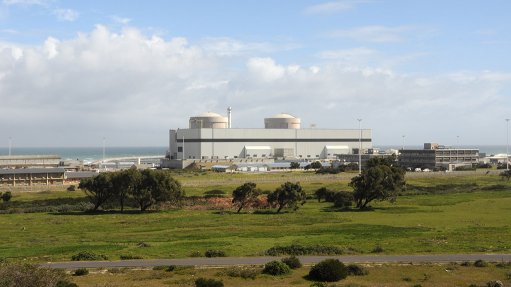
South African Nuclear Energy Corporation (better known as Necsa) CEO Phumzile Tshelane has urged the local nuclear sector to adopt a different approach in promoting the expansion of nuclear energy in South Africa. "We have to talk about nuclear today," he affirmed in his address to the Nuclear Africa 2014 conference in Midrand (between Johannesburg and Pretoria) on Tuesday. "Let's talk about it differently, with action plans in mind." These action plans would not be detailed, yet, but "[w]e must convince our [political] masters that we can do it!"
"We need nuclear. It's the only other baseload electricity solution we can apply. The other is coal," he asserted. "We need to have our own reliable source of power. We need to mitigate climate change."
Yet the country has been talking about building new nuclear power plants since the early 2000s. "We went through a procurement process back in 2008 and we were going to announce the bidders before the end of that year," he noted. "That didn't happen." Currently, there is the Integrated Resource Plan 2010, which provides for 9 600 MW of nuclear power, although this plan is now being revised. No decisions have yet been made.
"What is it that drives South Africans not to make these decisions, or to be slow to make these decisions?" he queried, pointing out that, time and again, projects are announced but nothing happens. Meanwhile, other countries are emerging and overtaking South Africa.
"I think it is everything to do with us [the South African nuclear sector]," he argued. "We haven't been effective in meeting our [country's] leaders." He pondered whether or not the local nuclear sector had any plans to convince the government that it could execute the proposed new nuclear build programme.
All new energy mega projects in South Africa will be haunted by the serious technical problems and delays at the Medupi coal-fired power station, now under construction, Tshelane said, explaing that if the lessons of Medupi were not learned, "no one" would believe that a nuclear reactor could be built in South Africa, "not even a research reactor". (Research reactors are much smaller and simpler than power reactors.)